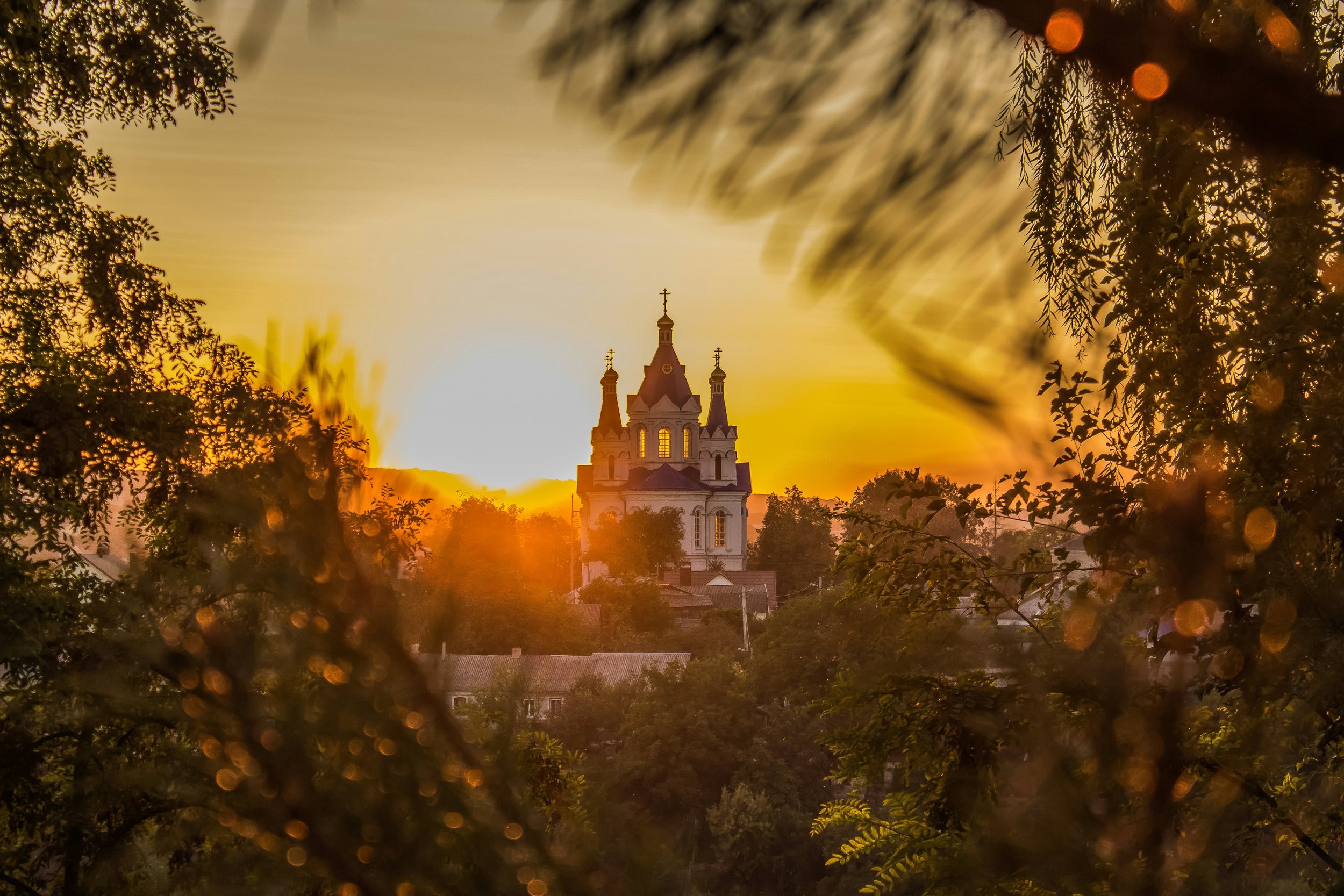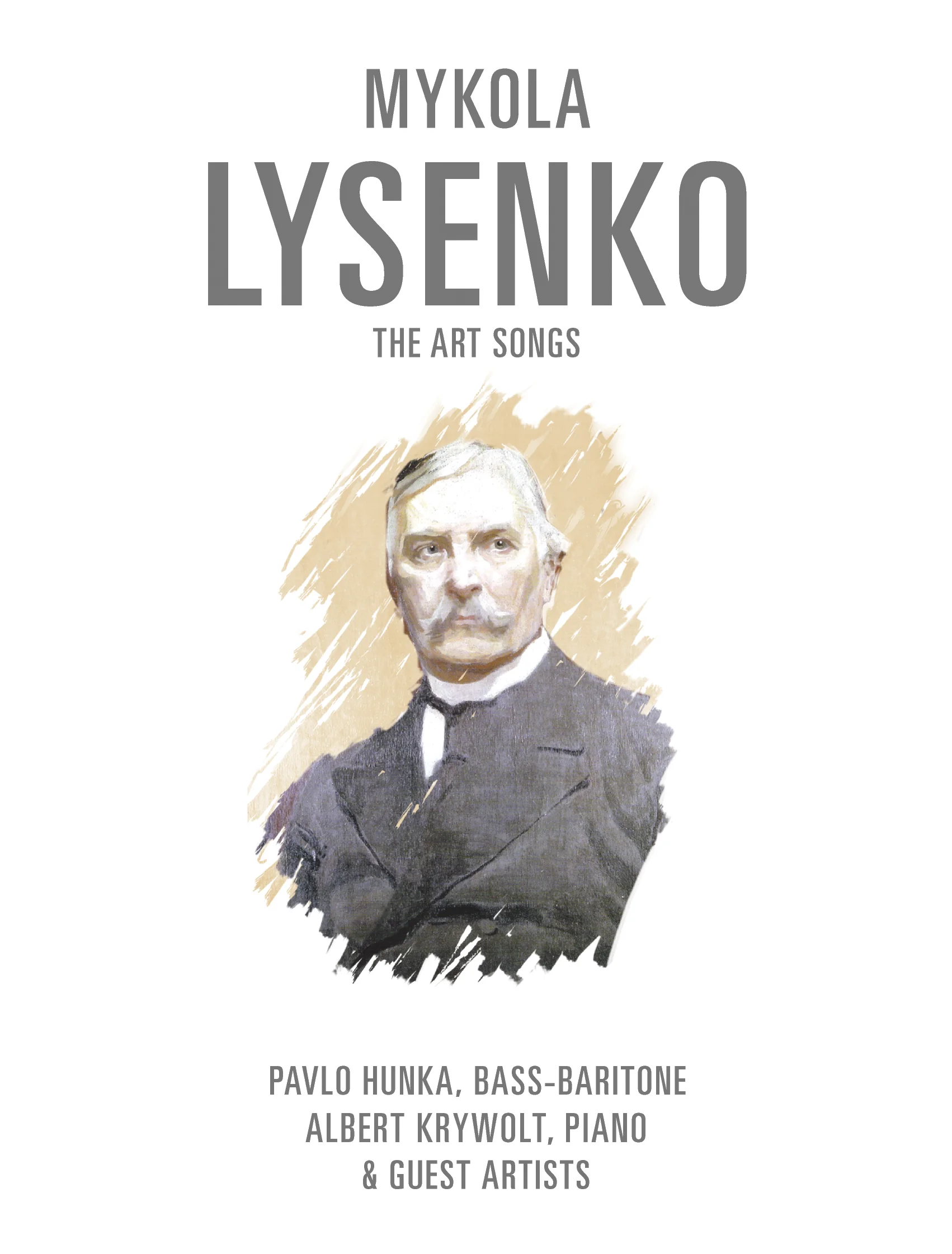The Ukrainian Art Song Project sends you this gift of song…♪
We invite you to listen to a beautiful interpretation of
In the Village of Subotiv ~
Стоїть в селі Суботові
Mykola Lysenko: composer
Taras Shevchenko: poet
Russell Braun, baritone
Mia Bach, piano
Taras Shevchenko
Translation: Watson Kirkconnell
In the village of Subotiv,
Upon a lofty hill
There stands the coffin of Ukraine–
A crypt both wide and still:
It is the church of great Bohdan,
Where once he used to pray
That Muscovite and Cossack might
Share good and ill always.
May peace be to your soul, Bohdan!
Their gain has been our loss:
And now they rend the burial mounds
In search of further loot;
Their hand assaults your hidden vaults;
They curse your soul to boot
Because they’ve nothing for their pains …
That’s how it is, Bohdan!
And this must be the gratitude
Now falling to your share …
The church that once had coffined you
No neighbour will repair!
That same Ukraine where long ago
You broke the Polish threat
And thus it is, Zenobius,
Alexei’s faithful friend,
You gave them all; but gratefulness
Is plainly at an end!
They say, you know, that all Ukraine
Was always really theirs,
And that we only farmed it out
To all the Tartars’ heirs
And to the Poles... Appears it so? Suppose it is the truth!
But on that score the neighbours’ tongues
Deride us without ruth ...
Yet do not laugh, ye foreign folk!
That church beneath the skies
May crumble down, but from its vaults
A new Ukraine will rise!
In 1845, Shevchenko wrote one of his most politically explosive anti-tsarist works, the epic mystery “The Great Dungeon,” in which he summarizes with extreme bitterness and anger Ukraine’s passage from freedom to captivity under the tsarist regime. “In the Village of Subotiv” is the concluding poem of the mystery, which Lysenko set to music in 1893. The mood of the song is accusatorial and yet defiant.
Тарас Шевченко
Стоїть в селі Суботові
На горі високій
Домовина України,
Широка, глибока.
Ото церква Богданова.
Там-то він молився,
Щоб москаль добром і лихом
З козаком ділився.
Мир душі твоїй, Богдане!
Не так воно стало …
Могили вже розривають
Та грошей шукають,
Льохи твої розкопують
Та тебе ж і лають.
Що й за труди не находять!
Отак-то, Богдане!
За те ж тобі й дяка.
Церков-домовину
Нема кому полагодить!
На тій Україні,
На тій самій, що з тобою
Ляха задавила!
Отаке-то, Зіновію,
Олексіїв друже!
Ти все оддав приятелям,
А їм і байдуже.
Кажуть, бачиш, що все то те
Таки й було наше,
Що вони тільки наймали
Татарам на пашу
Та полякам … Може, й справді!
Нехай і так буде!
Так сміються ж з України
Стороннії люди!
Не смійтеся, чужі люди!
Церков-домовина
Розвалиться … і з-під неї
Встане Україна!
В 1845 р. Шевченко написав один з його політично найгостріших анти-царських творів, містерію “Великий льох”, де він з винятковою гіркотою та гнівом підсумовує історію поневолення України під російською імперією. “Стоїть в селі Суботові” є епілогом містерії, покладений на музику Лисенком в 1893 р. Настрій твору є обвинувачувальним, та все ж нескореним.
MYKOLA LYSENKO (1842–1912)
Mykola Lysenko (1842–1912)
Mykola Lysenko is the father of modern Ukrainian classical music. His prolific life’s work laid the foundation for the further development and expansion of Ukrainian musical culture. He influenced a large group of Ukrainian composers, including Stetsenko, Stepovyi, Leontovych, Koshyts, and Liudkevych. A compilation of Lysenko’s works in 22 volumes was published in Kyiv in 1950–59.
Lysenko was a composer, ethnomusicologist, pianist, and conductor. He studied at the Kharkiv and Kyiv universities and, later, at the Leipzig Conservatory under Reinicke and Richter (1867–69). From 1874 to 1876 he studied orchestration under Rimsky-Korsakov in St. Petersburg. In 1904, he founded his own School of Music and Drama in Kyiv.
The list of Lysenko’s operatic compositions include Black Sea Cossacks (1872); three operas based on the works of the Ukrainian writer Mykola Hohol – Christmas Night (1873–82),
The Drowned Maiden (1883) and Taras Bulba (1890); and the operettas Natalka from Poltava (1889) and Aeneas (1911). Himself a well-known pianist, Lysenko composed a piano sonata, two rhapsodies, a suite, a scherzo and a rondo, as well as an abundance of smaller pieces, including songs without words, nocturnes, waltzes and polonaises. He also wrote a number of works for strings. Of the Ukrainian composers, Lysenko was the most committed to the art song genre. Lysenko’s 133 art songs (lirychni pisni in Ukrainian) relate a wonderfully descriptive and passionate story of 19th- and early 20th-century European life.
own the disk
Stream or Download
Hello, World!
The Ukrainian Art Song Project has been bringing Ukraine's musical treasures to light since 2004. With your support, we will continue to bring Ukraine's finest composers and their masterpieces to the world stage, where they belong.
Проєкт "Українськa Мистецькa Пісня" поширює найкращі зразки української музики з 2004 року. З Вашою підтримкою ми продовжимо презентувати найкращих українських композиторів та їх шедеври, які належать до світової музичної спадщини.
Your gift can also be made through CanadaHelps as a one-time or monthly donation.







